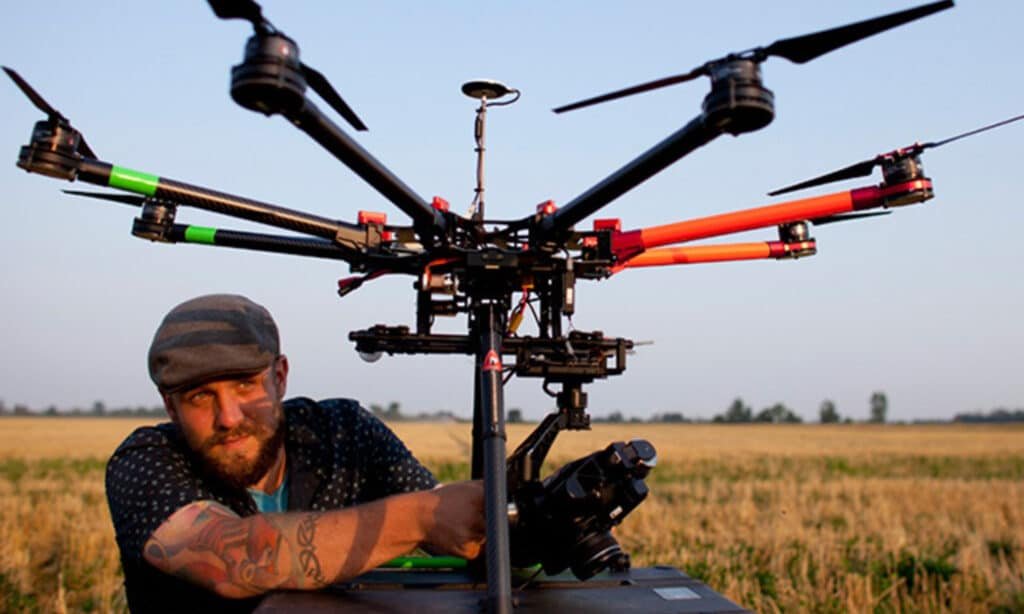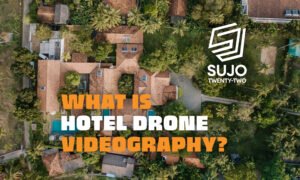
Are you planning to hire a drone pilot to get some stunning aerial photos or video footage of your luxury resort in Phuket Thailand? Or are you a visiting tourist planning to fly your drone in Thailand to capture the country’s scenic tropical coastline? Or are you simply looking to buy a drone for your personal use? Whatever the case may be, there are some general rules about buying and flying drones in Thailand. So, let’s go through these drone regulations, find out what might apply to you, and ensure that you have a fun flying experience without breaking any laws in Thailand.
The Regulatory Authorities
An unmanned aerial vehicle (UAV) more commonly known as a drone, is any aircraft that does not contain a human pilot, crew, or passengers on board. Drone regulations in Thailand are handled by mainly two government institutions. Anyone planning on flying a drone will need to obtain permission from these authorities.
The Civil Aviation Authority of Thailand (CAAT)
First, there is the Civil Aviation Authority of Thailand (CAAT). They are responsible for the registration and regulation of the people who own, operate, or fly a drone in Thailand. If you’re planning on operating remotely piloted aircraft yourself, you must be registered with the CAAT and have their permission to do so. If you’re hiring a pilot to fly an unmanned aircraft, you should ensure they have the required CAAT license to operate it.
The National Broadcasting and Telecommunications Commission (NBTC)
The National Broadcasting and Telecommunications Commission (NBTC) is responsible for regulating radio broadcasting frequencies for television, radio, and any other business within Thailand. The specific frequencies used to remotely control your drone must be registered with them. This will depend on the type and size of your drone.
What Drone Pilots Need to Know
Only after getting clearance from both of these government offices, the CAAT and NBTC will you be eligible for flying a drone within Thailand. Let’s look at the most important rules and regulations of owning and flying a drone.
Drone Registration
If your drone weighs more than 02kg or contains a camera or recording gear of any kind, it must be registered with the NBTC. If the drone weighs over 25kg, you need to get special authorization from the Ministry of Transport in Thailand. Obtaining these drone clearances does not mean you’re eligible for flying it.
Registration can be done by visiting a branch of the NBTC with all the required personal identification documents, completed application forms, a photograph of the drone with its serial number, and a photograph of the remote control or transmitter with its serial number.
Entering Thailand with Your Drone
You are allowed to bring your drone while you’re visiting Thailand. However, you must first register with the NBTC if your drone falls under the conditions mentioned earlier, and you’re planning on operating it.
Furthermore, you must also ensure that the batteries for your drone must be stored safely in your cabin baggage if you’re flying to Thailand. This is because LiPo batteries may become unstable due to changing temperatures and air pressure if you accidentally store them in the checked luggage of a commercial airliner. For extra safety, it is recommended that your store the batteries inside specially designed LiPo bags when you carry them.
Licenses for Flying Drones
After your drone registration from NBTC is obtained, you have to get clearance from CAAT before flying a drone. The applicable drone laws in Thailand will depend on how much the UAVs weigh and what the purpose of using them is. The following licenses for operating drones are valid for two years from the date of issuance.
Recreational Use
For drones weighing less than 02 kg being flown for recreational purposes like a hobby, there is no special license to be obtained. Any person above the age of 18 can fly or operate the drone as long as they comply with the general rules of operating a UAV. This can also include entertainment or sports purposes. If you’re just flying with your friends, you can do so within these conditions without requiring a license.
However, if your drone weighs between 02 to 25kg, you need to be at least 20 years of age and apply for a license with CAAT. You also have to prove that you are not a national security threat and have not been sentenced to prison for violating narcotics or customs regulations.

Commercial Use
Drones allowed for commercial purposes like television programs, filmmaking, journalism, or any sort of commercial video production require a license from the CAAT. Operating UAVs for commercial purposes also require the pilot to be at least 20 years old, have not been convicted of a crime, and not be a threat to the national security of Thailand.
The drone operator also has to be employed by or be the owner of the registered business in the related category (film or video production, mass communication, etc). If you’re getting a professional company to shoot aerial footage of your luxury resort or wedding destination, make sure to check if they have a licensed pilot to operate the drones before you hire them. For more details on obtaining a license, check out the official CAAT UAV Registration Guide.

General Rules for Flying a Drone in Thailand
After getting their license, drone pilots need to remember these key points while flying. Before the flight, they have to ensure that the UAV is in a good condition to fly. They also have to get clearance from the landowner and check the environment and available airspace before take-off. Furthermore, a drone operator needs to have an emergency plan with medical care in the event of an accident or if the drone becomes uncontrollable.

Once the drone is in the air, the following rules will apply. It must not be flown in a way that can cause harm to life or property. Care must be taken to make sure the drone does not fly close to or enter any restricted areas like state buildings, hospitals, or national parks. The full list of restricted areas is published in the Aeronautical Information Publication.
Visual line of sight has to be maintained at all times, and drones also have a maximum altitude of 90 meters above ground level. The landing area must not be obstructed by anything and must take care not to fly within 09km of the aerospace of any airport or temporary airfield. Drones are also not allowed to fly near traditional manned aircraft, within clouds, or during the nighttime. They also cannot fly horizontally within 30 meters of buildings, vehicles or people.
Drone operators must make sure not to fly overcrowded areas where people are gathered, not cause any nuisance or fly in a way that violates the privacy of others. UAVs must also not carry any dangerous materials that can cause harm. The full list of drone rules is available on the CAAT website and anyone planning to operate a drone or hire a drone pilot should read them in advance.

Drone Insurance Policy
Insurance coverage is also required for drones that weigh more than 02kg or drones that have cameras for commercial purposes. You need to obtain an insurance policy before registering your drone and it must cover damages to the body, life, and property of third parties with a minimum of 1 million baht.
Penalties for Violating Regulations
Failure to register a drone with the NBTC could result in a fine of up to 100,000 Thai baht or even a prison sentence of up to five years. Operating a drone with a camera without a license could result in fines of up to 40,000 baht and up to a year in prison. Flying dangerously can immediately get you fined, or even get your license revoked, so it’s always best to practice caution.
Need a Licensed Pilot to Shoot Drone Video Footage?

Understanding all the complicated rules and jumping through these bureaucratic hoops to register a drone can be a major hassle. However, by hiring an experienced video production company that already has a license to operate registered UAVs, you can sit back and watch them handle your video project.
Sujo Twenty-Two is the video production partner for you, with years of experience in the tourism industry and multiple projects completed using professional drone videography. We’ll help you capture stunning aerial footage of your luxury hotel or tourist destination. Check out SUJO Twenty-Two today!
FAQs
Yes. You have to register a drone that weighs more than 2 kg, contains a camera, or is used for commercial purposes with the National Broadcasting and Telecommunications Commission (NBTC).
Yes. Drones that weigh more than 2kg, have cameras or are used for commercial video productions require a license from the Civil Aviation Authority of Thailand (CAAT). Drones that weigh less than 2 kg and are used for recreational purposes can be flown without a license.
Yes. You can carry a drone to Thailand for an airport transit or short visit without a license if you’re not planning to fly it or resell it during your stay. However, you must take care to carry its LiPo batteries in your hand luggage due to safety reasons.



